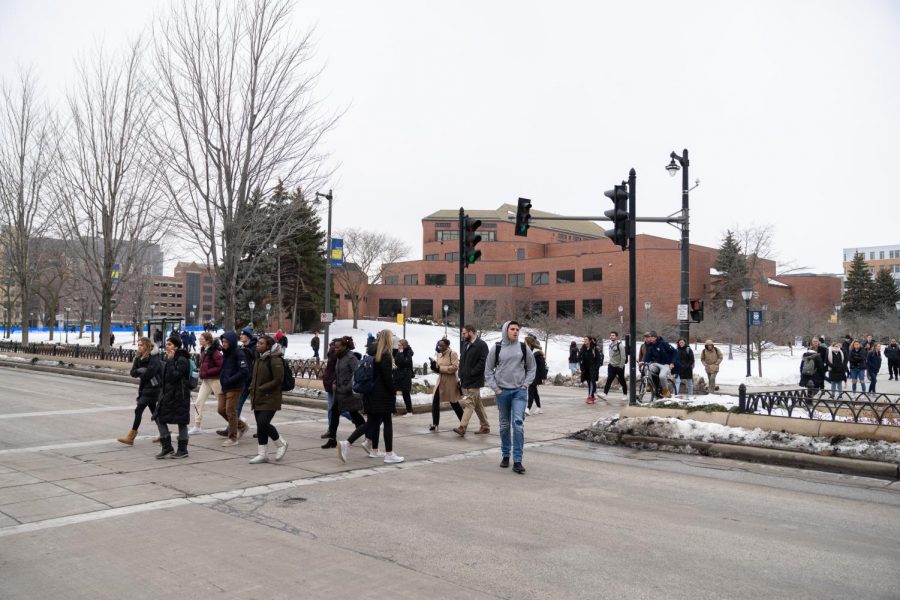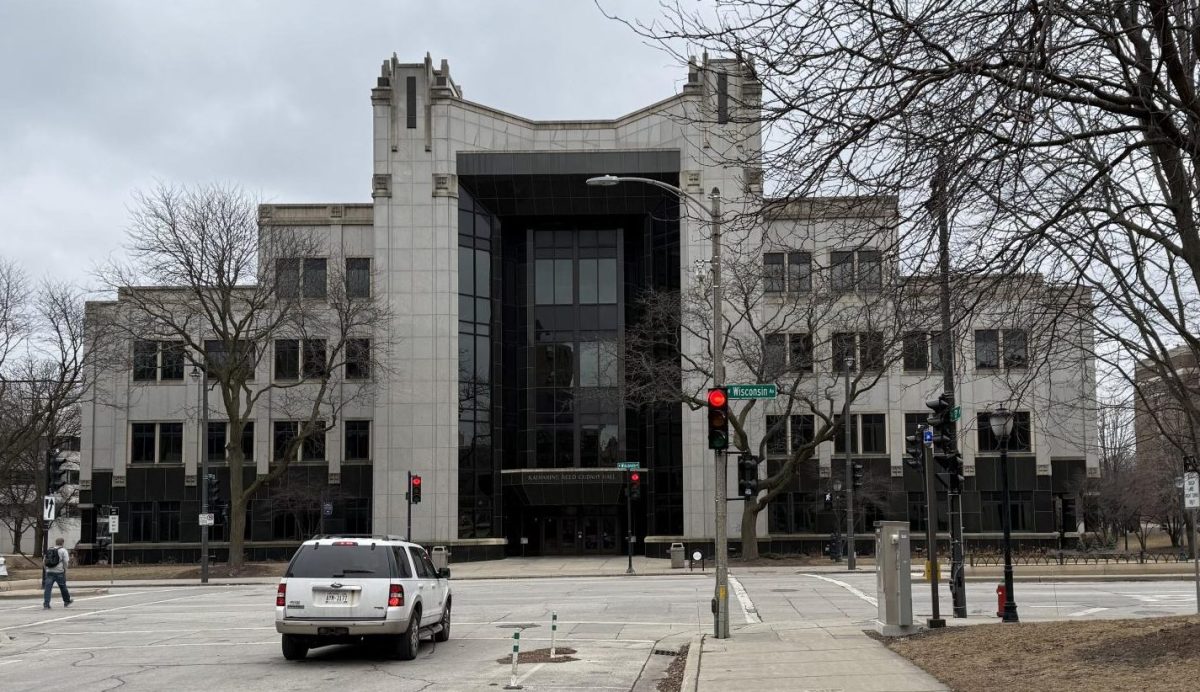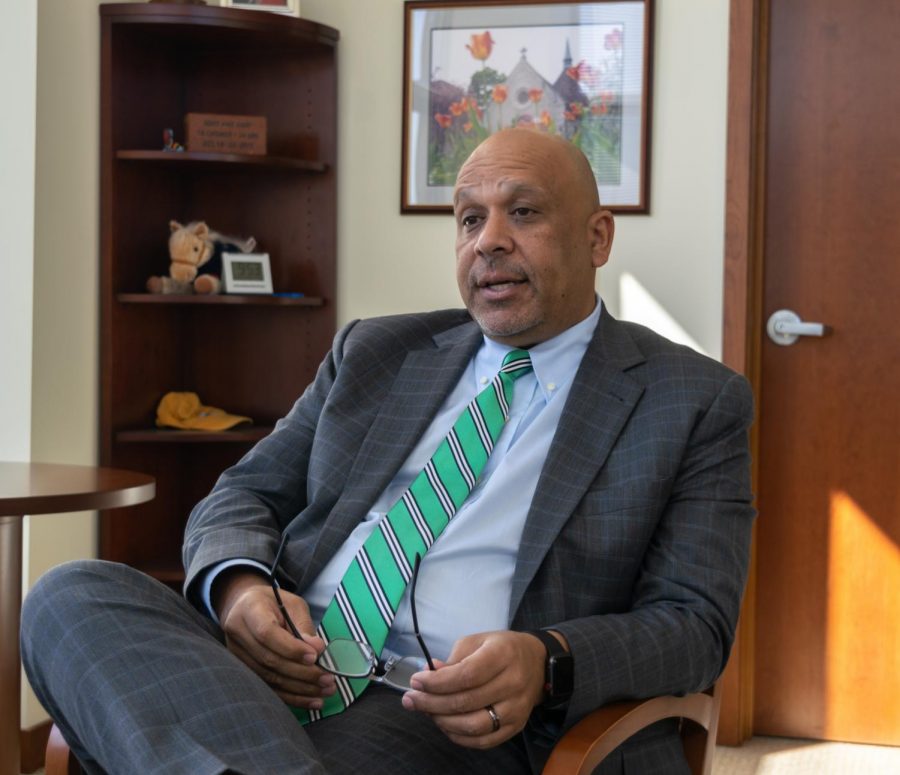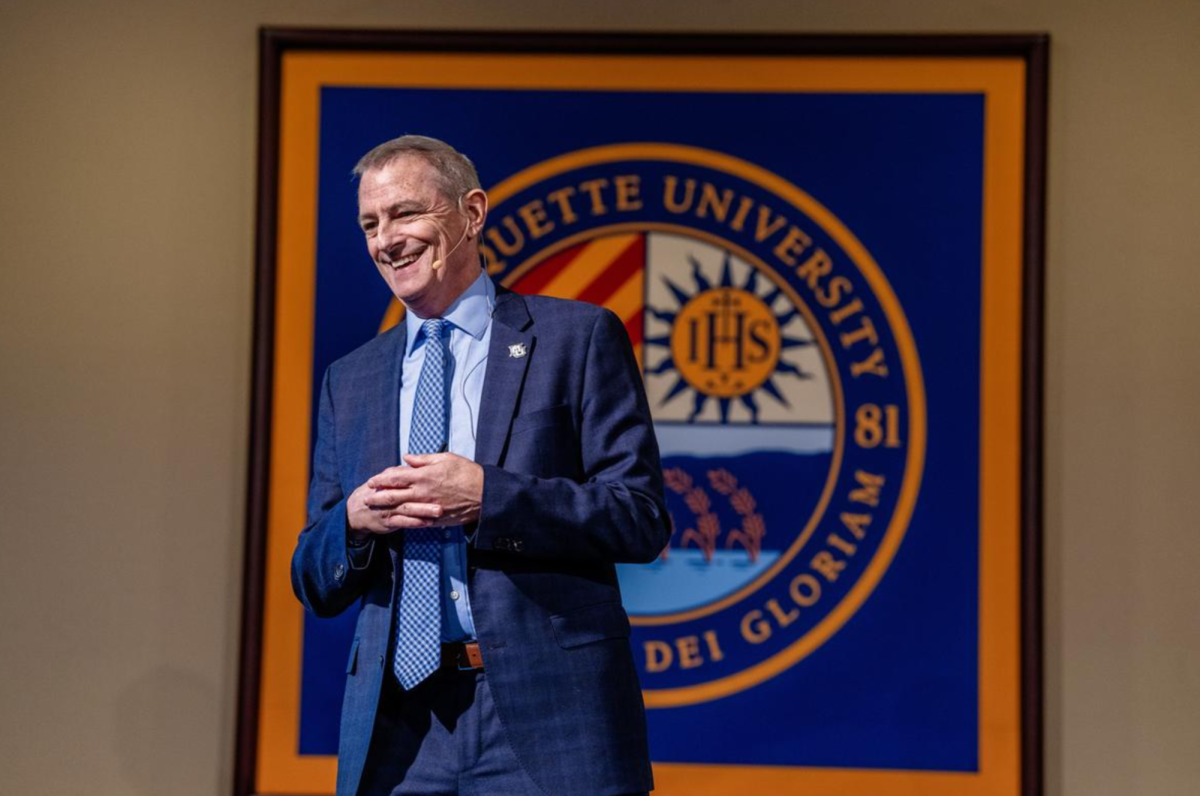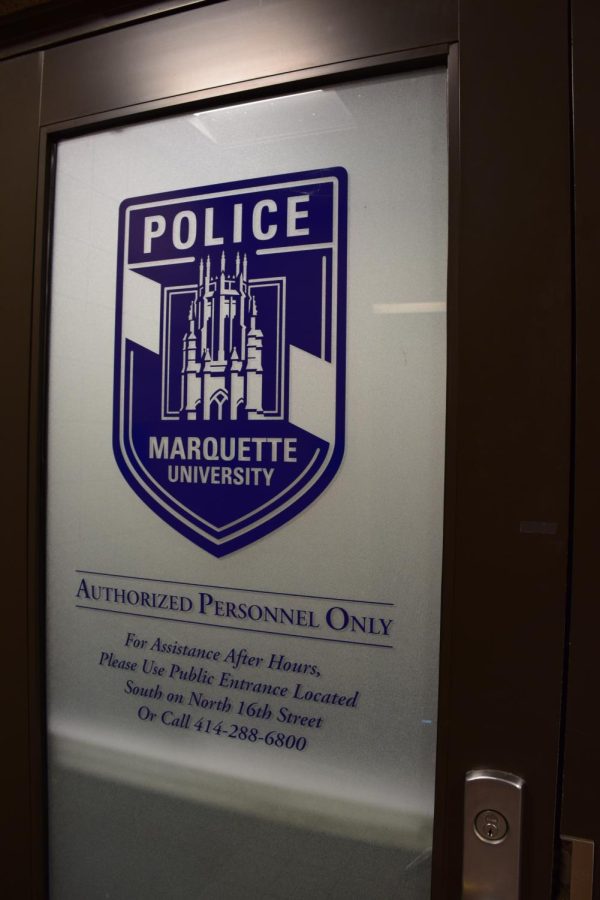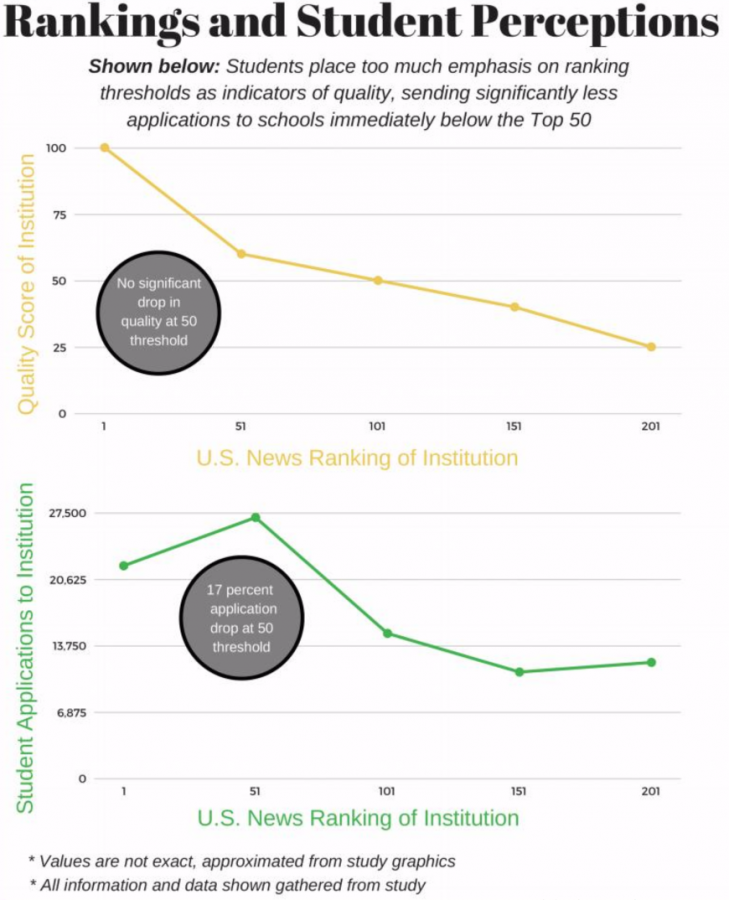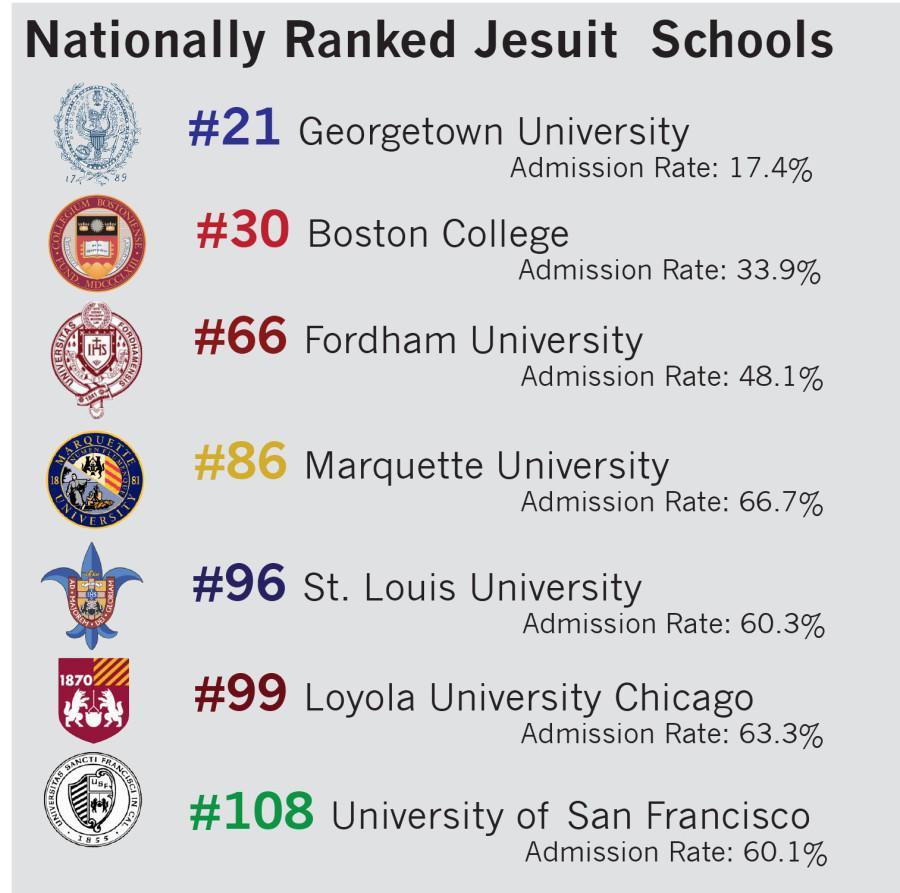
A college education opens the portal to a new world of jobs.
But that diploma comes at an increasingly steep price many simply cannot afford, especially in a struggling economy that has ruthlessly snatched away jobs and investment returns.
Marquette families are vulnerable, too. Your roommate’s parents may have delayed retirement to put their child through college. The student sitting next to you in class might be considering taking a year off from school to save money. You may know someone with $30,000 of debt, or more.
Maybe that someone is you.
Next school year, Marquette undergraduate tuition and fees will jump to $30,462.
This is still a bargain in comparison to the Harvards and the Notre Dames, with tuition and fees at $37,012 and $38,477, respectively, in 2009-’10. But it still begs the question — is a Marquette education worth the price tag?
[youtube]TR55FS1_gzg[/youtube]
Breaking down the costs
Marquette is tuition dependent. Net tuition and fees covered 60 percent of total operating revenues in the fiscal year 2009 budget, according to the annual president’s report.
The university can predict much of the coming year’s revenue based on factors like enrollment, but there are plenty of variables, said Provost John Pauly.
For example, although investment and endowment income comprise only 4 percent of total revenues, vast market fluctuations still affect Marquette’s budget.
Marquette’s total endowment ended fiscal year 2009 at $285,516,000, down 20 percent from the previous year, according to the president’s report.
Endowment losses have affected the amount available from endowed scholarship and endowed chair funds, Pauly said.
To offset mounting tuition, the university focuses on putting more toward financial aid, Pauly said. The university allocated an extra $4 million in its fiscal year 2010 budget for aid.
Another $1.1 million was raised for the “Bridge to the Future” Fund — helping 200 current students remain at Marquette.
Still, the average 2008-’09 graduate left Marquette with more than $31,000 in debt, according to the Office of Institutional Research & Assessment.
In order to offset inflation, universities must increase tuition annually. But over the last few years, tuition across the country has increased more than inflation, Pauly said.
“There seemed to be acceptance of that for a long time,” Pauly said. “We’re probably at a moment where higher education needs to reinvent itself in order to manage its costs.”
Pauly said he believes Marquette does a lot with “relatively modest resources.” Part of that is endowment wealth. Marquette’s endowment nearly equals its annual budget, while many universities have an endowment three times larger than their budget.
Pauly said careful budgeting and an emphasis on “internal efficiencies and improvements” have allowed Marquette to commit to large projects over the years, including recent plans for new law and engineering buildings.
Not a ‘magic number’
So if tuition revenues drive the Marquette budget, admitting more students would lower the costs for each individual, right? Not so fast.
More students would not necessarily mean more revenues, Pauly said. A significant enrollment increase could also bring more costs and cause headaches for placement programs in fields like nursing and engineering, as well as a housing crunch.
“Quality comes first,” Pauly said. “With all those constraints, we’re at about the right size. We could get a little bigger, but there’s no big push for that.”
But has breaking the $30,000 tuition barrier changed prospective students’ perception of Marquette?
The numbers emphatically say no. This is the 10th year in a row Marquette has received a record number of applicants, said Roby Blust, dean of admissions and enrollment planning. To date, Blust said his office has received more than 19,600 freshman applications for 2010-’11, an 11 percent increase over this time last year and a 31 percent increase from two years ago.
University officials recognize tuition’s financial burden on students and families, and have taken crossing the $30,000 threshold “very seriously,” Pauly said.
“We’ve made our discussions more urgent for how we can make Marquette more affordable for students,” Pauly said.
The $30,000 figure is not exactly a “magic number,” Blust said. Tuition will increase $1,360 next year, a 4.7 percent increase. Tuition increased 3.5 percent last year.
Marquette is still a deal by many standards — it is ranked 50th by U.S. News & World Report as a “Best Value” college and one of 50 schools on its “Great Schools, Great Prices” list. The Fiske Guide to Colleges also considers the university a “Best Buy School.”
“The quality for tuition is very good,” Pauly said.
According to U.S. News & World Report data, Marquette has strengthened graduation and retention rates, alumni giving and the predicted graduation rate. Its relative weakness is financial resources, such as how much Marquette spends per student and spending on educational programs.
Pauly said Marquette administrators know about the university’s financial weaknesses in the rankings, noting that it remains outside the top 100 in terms of resources, despite recent improvements.
Nevertheless, Pauly said he believes Marquette’s reputation is less about rankings and more about “whether we are what we say we are.” He wants the university to focus on its strengths, not “operate in the shadow” of richer schools.
“We should be clear with ourselves about what the value of a Marquette education is, and be proud of that and stand by that as a promise to faculty and students,” Pauly said. “A lot of wonderful things happen at Marquette.”
More than ‘bullet points in a brochure’
Education begins in the classroom, and professors have a substantial impact on the quality of learning at a university.
Marquette faculty is highly regarded, according to Christine Krueger, an associate professor of English who also serves as vice chair of the University Academic Senate and as chair of the faculty council. She cited praise for classroom delivery and research productivity in academic program reviews.
“Every review that I know of has praised the quality of the faculty,” Krueger said. “We’re trying to live up to our good students, and I think we’re doing that.”
Marquette has a solid reputation that extends well beyond Wisconsin Avenue, according to David Rubin, a professor at Syracuse University, a fellow private institution in the Big East conference.
“I believe Marquette is viewed generally around the country as a solid program and as a place to get a good liberal arts education that’s strongly anchored in service,” said Rubin, dean emeritus of Syracuse’s Newhouse School of Public Communications.
Rubin said Marquette’s tuition is “basically right in line” with other private schools. This year, tuition at Syracuse totaled $34,926.
Private schools often have advantages over public institutions in class size, technology and the availability of desired courses, Rubin said. The worth of the education depends on one’s overall experience, the alumnus’ pride and the value of the degree.
“Can you put a price tag on that?” Rubin asked. “Not really.”
According to Blust, Marquette’s value is “hard to list in bullet points in a brochure.”
“A Marquette education has such long-term value,” Blust said.
Students generally agree, despite the financial strain.
Jordan Abudayyeh, a sophomore in the College of Communication, does not believe a Marquette education is worth $30,040 per year, but she has no regrets. She feels she is receiving quality instruction, and she loves Marquette for the atmosphere, the people and the experiences.
“College, to me, is more than just sitting in a classroom and getting an education,” Abudayyeh said.
Ryan Corr, a junior in the College of Arts & Sciences, shared similar thoughts.
“I think outside the classroom — the service, being men and women for others — is something that you don’t get at a lot of other universities,” Corr said.
In the end, the overall Marquette experience makes the price worth it for many students.
Katelyn Baker, a sophomore in the College of Communication, values the focus on service and “caring for the whole person.”
“It’s worth a lot more than you’re paying for,” Baker said.



